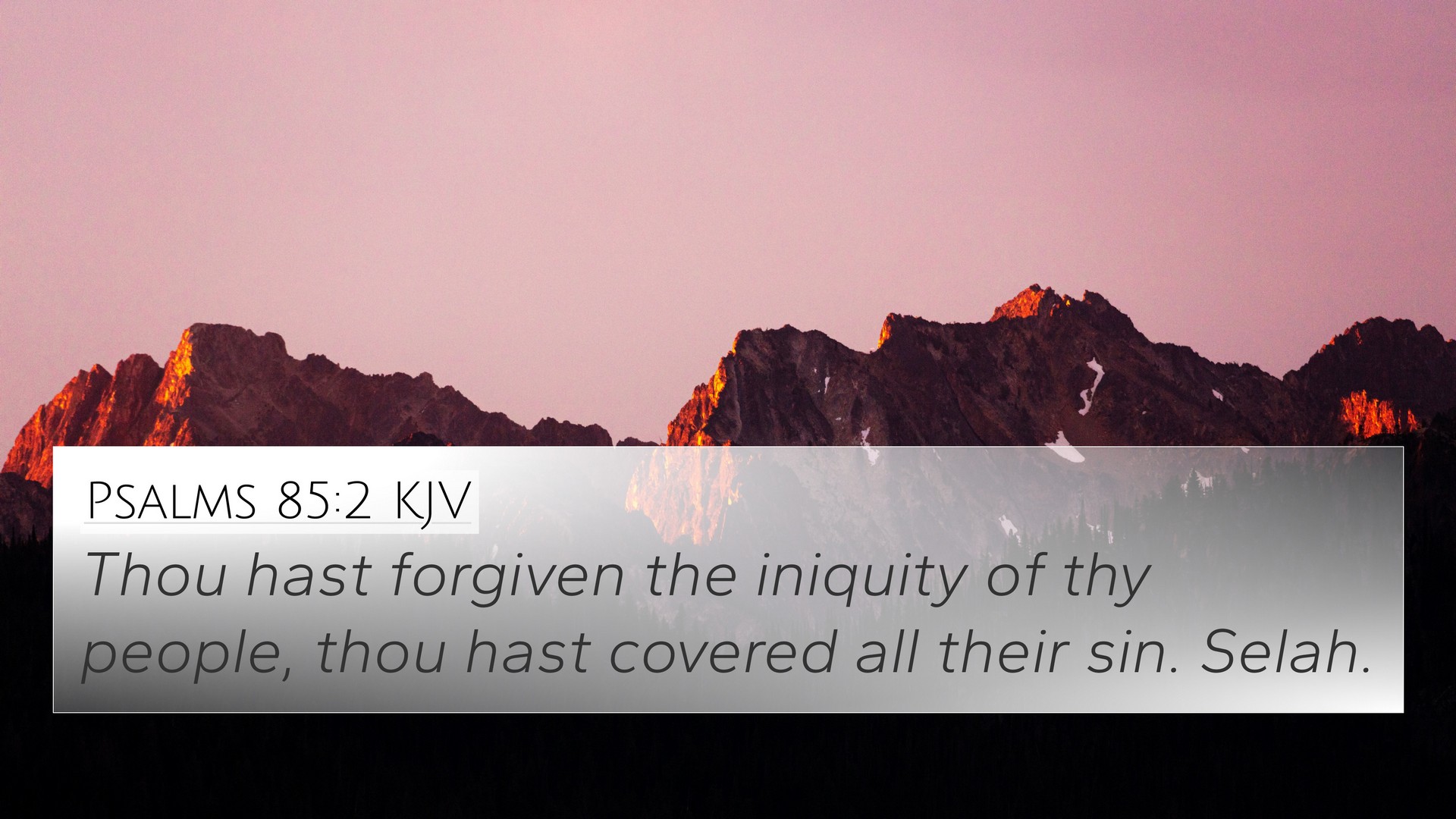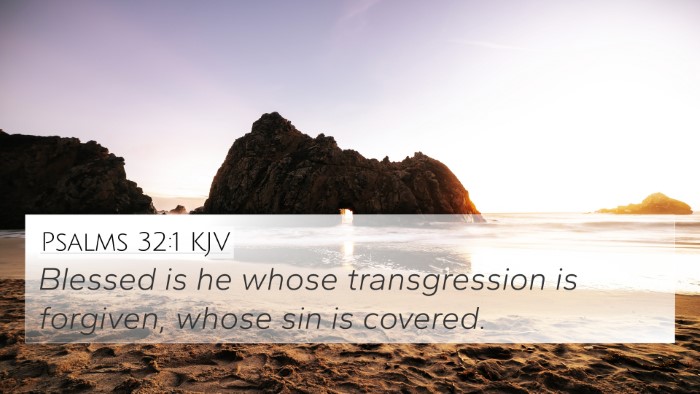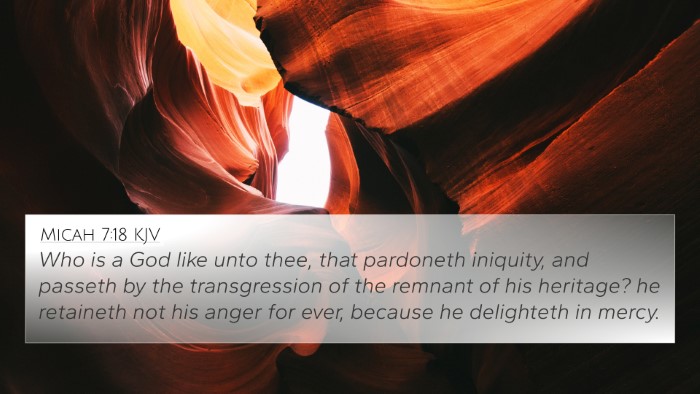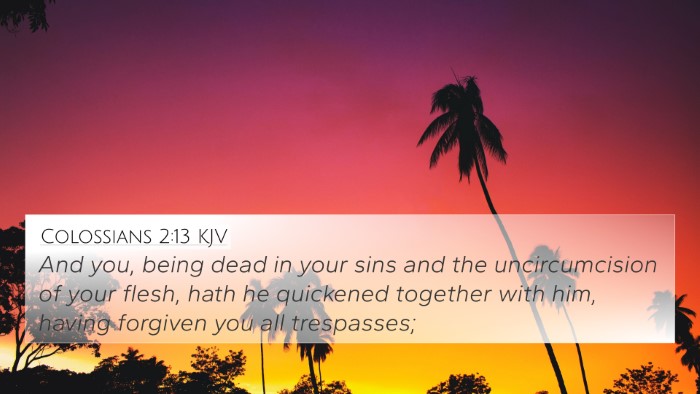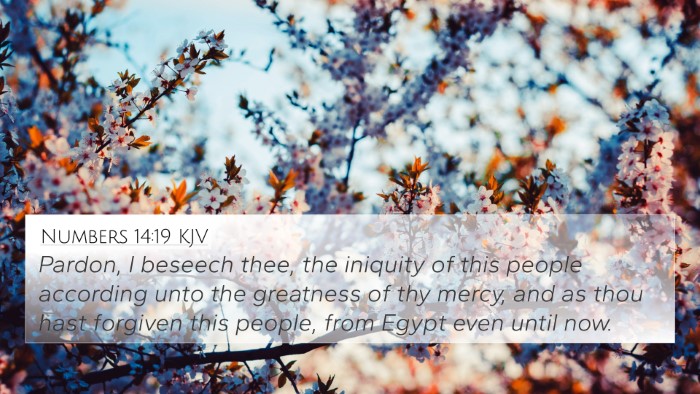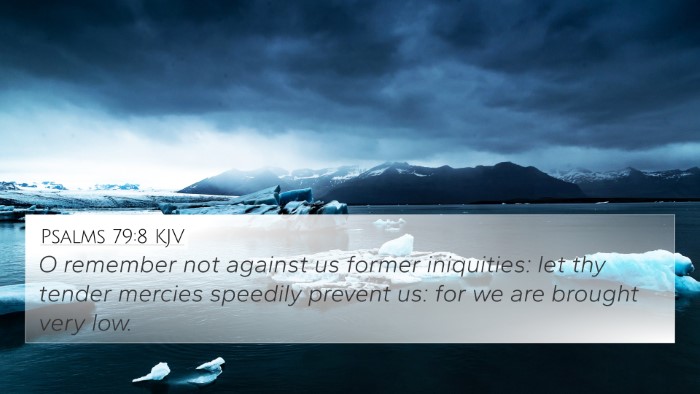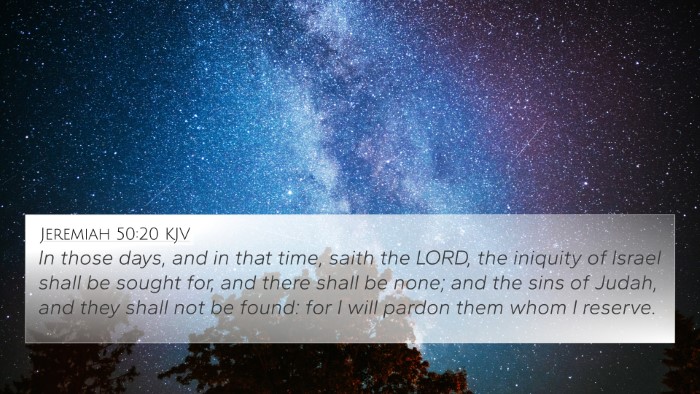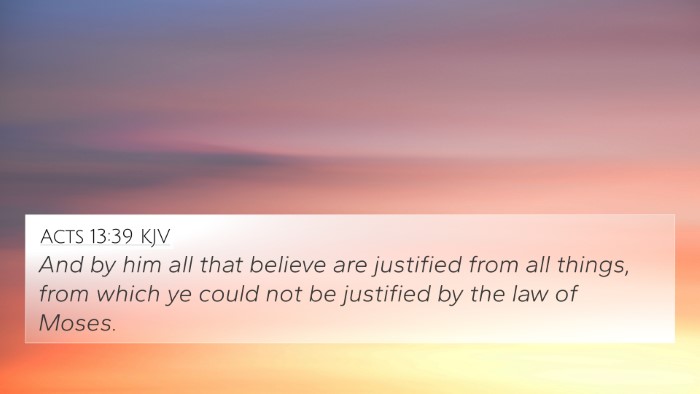Psalms 85:2 - Biblical Interpretation and Insights
Verse: "Thou hast forgiven the iniquity of thy people, thou hast covered all their sin. Selah." (Psalms 85:2)
This verse emphasizes God’s mercy and forgiveness towards His people, encapsulating fundamental themes of redemption and grace in the relationship between humanity and the Divine.
Summary of Meaning from Public Domain Commentaries
Matthew Henry's Commentary
Henry highlights the encompassing nature of God's forgiveness. He notes that the psalmist acknowledges the need for restoration after a period of sinfulness. The act of forgiveness is not merely passive; it actively covers sin, which denotes an assurance of acceptance and cleansing. Henry elucidates that this verse serves as a declaration of divine mercy, encouraging the faithful to seek God's grace through repentance.
Albert Barnes' Commentary
Barnes focuses on the gracious attributes of God as displayed in this verse. He distinguishes between the terms “forgiven” and “covered,” indicating that forgiveness implies restoration of relationship while covering signifies the removal of sin's consequences. Barnes posits that the reference to "Selah" serves as a moment of reflection, urging believers to contemplate the weight of God's forgiving nature.
Adam Clarke's Commentary
Clarke interprets this verse as a powerful acknowledgment of God's ability to forgive sin and restore His people. He notes that this forgiveness reflects the covenant relationship between God and Israel. The verse signifies a response to heartfelt prayer for restoration, revealing Clarke's insight into the psalm's communal aspects where the community seeks collective reconciliation with God.
Cross-References Related to Psalms 85:2
- Psalm 32:1-2 - “Blessed is he whose transgression is forgiven…” Reinforces the theme of divine forgiveness.
- Isaiah 43:25 - “I, even I, am he that blotteth out thy transgressions…” Highlights God's active role in erasing sins.
- Micah 7:18-19 - “Who is a God like unto thee, that pardoneth iniquity…” Emphasizes God’s unique forgiving nature.
- Romans 4:7 - “Blessed are they whose iniquities are forgiven…” Connects Old Testament forgiveness to New Testament themes.
- 1 John 1:9 - “If we confess our sins, he is faithful and just to forgive us…” A New Testament affirmation of divine forgiveness.
- Colossians 2:13 - “And you, being dead in your sins... hath he quickened together with him, having forgiven you all trespasses…” Reflects the completeness of God’s forgiveness.
- Ephesians 1:7 - “In whom we have redemption through his blood, the forgiveness of sins…” Ties forgiveness to redemption through Christ.
Thematic Connections and Insights
This verse offers rich thematic connections within scripture, revealing a broader narrative of God’s grace throughout the Bible.
- Divine Mercy: Central to both the Old and New Testaments, God's mercy is a recurring theme.
- Restoration: Psalms often reflects on the restoration of relationship after sin, as seen in both Psalms 51 and Isaiah 57:15.
- Community Repentance: The communal aspect of sin and forgiveness is important in Psalms, evident also in Daniel 9:20.
- Covenantal Relationship: The notion of covenant, repeated in the Pentateuch and the prophetic literature, frames the understanding of God’s forgiving nature.
- New Testament Fulfillment: The theme of forgiveness culminates in Christ, as seen in the Gospels.
Conclusion
Psalm 85:2 encapsulates a powerful message of God’s forgiveness—central to faith and the practices of repentance and restoration. Understanding this verse within the broader biblical context deepens its impact and encourages believers to embrace divine mercy. The interconnectedness of scripture through cross-referencing illuminates the continuous themes of redemption, mercy, and hope that run throughout the Bible.
